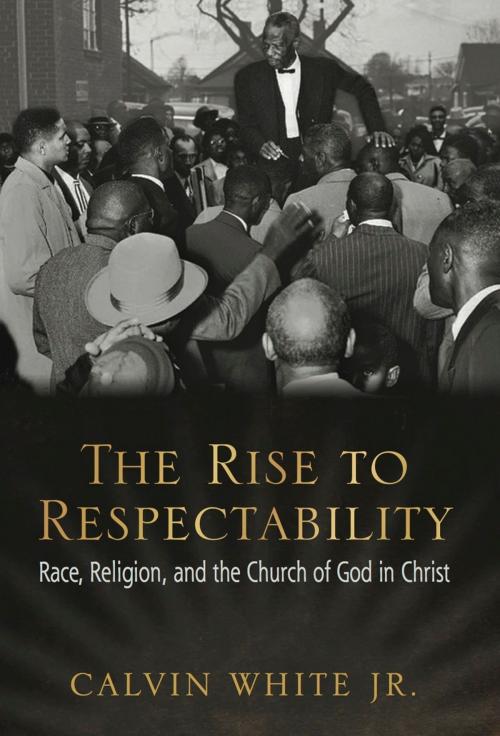The Rise to Respectability
Race, Religion, and the Church of God in Christ
Nonfiction, Religion & Spirituality, Christianity, Denominations, Pentecostalism, Social & Cultural Studies, Social Science, Cultural Studies, African-American Studies| Author: | Calvin White | ISBN: | 9781610755108 |
| Publisher: | University of Arkansas Press | Publication: | November 1, 2013 |
| Imprint: | University of Arkansas Press | Language: | English |
| Author: | Calvin White |
| ISBN: | 9781610755108 |
| Publisher: | University of Arkansas Press |
| Publication: | November 1, 2013 |
| Imprint: | University of Arkansas Press |
| Language: | English |
The Rise to Respectability documents the history of the Church of God in Christ (COGIC) and examines its cultural and religious impact on African Americans and on the history of the South. It explores the ways in which Charles Harrison Mason, the son of slaves and founder of COGIC, embraced a Pentecostal faith that celebrated the charismatic forms of religious expression that many blacks had come to view as outdated, unsophisticated, and embarrassing.
While examining the intersection of race, religion, and class, The Rise to Respectability details how the denomination dealt with the stringent standard of bourgeois behavior imposed on churchgoers as they moved from southern rural areas into the urban centers in both the South and North.
Rooted in the hardships of slavery and coming of age during Jim Crow, COGIC’s story is more than a religious debate. Rather, this book sees the history of the church as interwoven with the Great Migration, class tension, racial animosity, and the struggle for modernity—all representative parts of the African American experience.
The Rise to Respectability documents the history of the Church of God in Christ (COGIC) and examines its cultural and religious impact on African Americans and on the history of the South. It explores the ways in which Charles Harrison Mason, the son of slaves and founder of COGIC, embraced a Pentecostal faith that celebrated the charismatic forms of religious expression that many blacks had come to view as outdated, unsophisticated, and embarrassing.
While examining the intersection of race, religion, and class, The Rise to Respectability details how the denomination dealt with the stringent standard of bourgeois behavior imposed on churchgoers as they moved from southern rural areas into the urban centers in both the South and North.
Rooted in the hardships of slavery and coming of age during Jim Crow, COGIC’s story is more than a religious debate. Rather, this book sees the history of the church as interwoven with the Great Migration, class tension, racial animosity, and the struggle for modernity—all representative parts of the African American experience.















